Category: News
Brad Terry named permanent program director for Idaho Fire Service Training
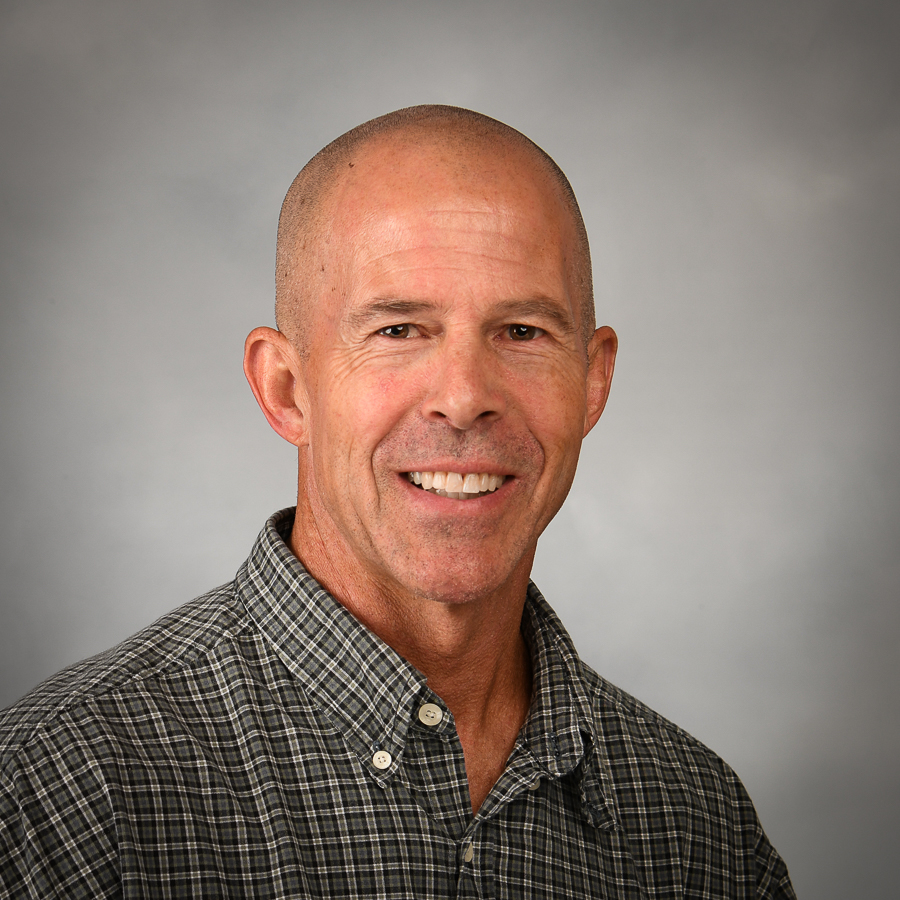
Brad Terry has been appointed permanent Program Director for Idaho’s Fire Service Training (FST), effective April 1.
Idaho Fire Service Training, housed within the Idaho Division of Career Technical Education (IDCTE), plays a crucial role in Idaho’s fire service community. As an accredited entity through the International Fire Service Accreditation Congress, Idaho FST offers access to industry credentialing, maintains transcripts, and provides training.
Terry brings extensive experience to his new role, including four years in the Marines and 17 years in the Air Force, including two deployments to Iraq and Afghanistan. Terry also served more than 26 years with the Nampa Fire Department. He progressed through various positions within the department, including firefighter, engineer, captain, shift training officer, and battalion chief, finally retiring in 2021.
“Since August, Brad has been serving in an interim role leading the work of Idaho’s Fire Service Training,” said Clay Long, IDCTE’s state administrator. “I’m excited to have Brad take the helm in the permanent role to continue building and moving FST forward.”
Terry is honored to serve in this new capacity.
“It’s a privilege to continue serving the firefighting community and contributing to the invaluable work of Idaho FST,” said Terry.
IDCTE releases its 2023 Annual Report
The Idaho Division of Career Technical Education (IDCTE) has released its 2023 Annual Report
For the third year in a row, the report highlights successful programs in each region, calling attention to the initiatives and collaborative efforts that help ensure students are prepared to meet workforce demands. This year’s report features:
- Bonners Ferry High School’s Cabinetmaking and Bench Carpentry program.
- Lewiston High School’s Digital Media Production program.
- Swan Falls High School’s Diesel Technology program.
- North Idaho College’s Center for New Directions.
- College of Southern Idaho’s Commercial Driver’s License program.
- Idaho State University College of Technology’s Automotive Technology program.
- Idaho Falls School District No. 91 Career Technical Education Center’s Cybersecurity program.
“Our programs benefitted from the financial support of Governor Little and the legislature, and this year’s report is a powerful testament to the return on those investments,” said Dr. Clay Long, IDCTE’s state administrator.
The report documents some of IDCTE’s major accomplishments, including:
- Finalizing a request or proposal for a new data and reporting system.
- Supporting almost 300 new CTE educators.
- Experiencing exponential program growth.
- Investing in program expansion and modernization.
- Reassessing and aligning program standards.
- Increasing the number of Workforce Readiness and CTE Diplomas issued.
The 2023 Annual Report also highlights IDCTE’s Exemplary Program Awards. Read the full 2023 Annual Report online.
Automotive technology program bridges skills with industry demands
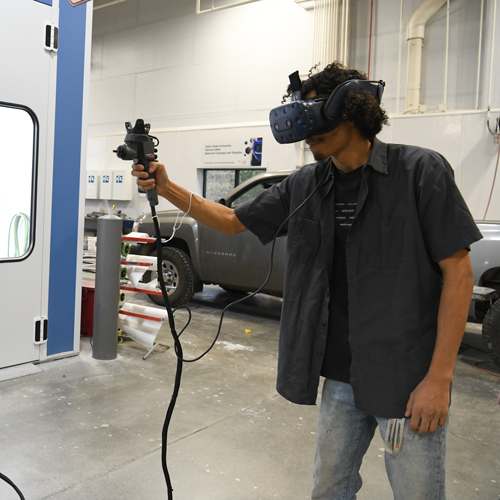
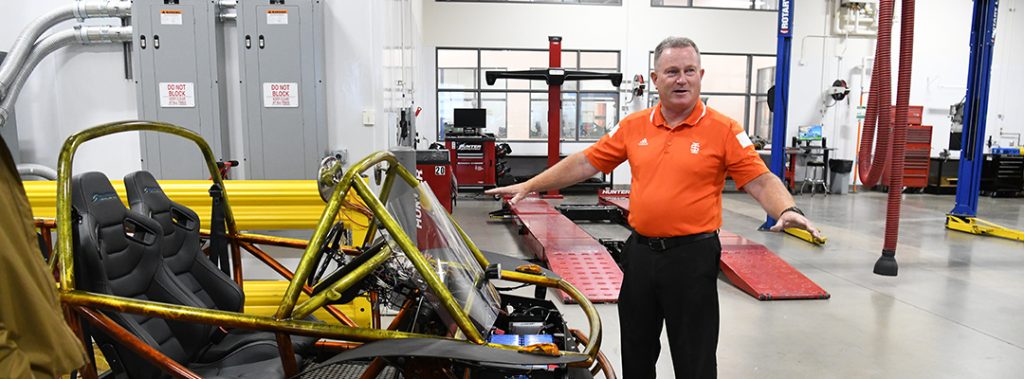
Seeing former students return and witnessing their career growth in the industry after five or 10 years, is truly satisfying.
Brock gunter
Growing up on a farm in Marsh Valley, Brock Gunter’s curiosity drove him to tinker endlessly.
“I took auto all four years of high school,” said Gunter. “My favorite classes were where I got to see how things worked and tear them apart.”
That passion led Gunter to the College of Southern Idaho, where he earned a certificate in diesel technology. For 13 years, he worked in the service department of a Pocatello car dealership. Though he loved his work, a personal connection with Dave Treasure, chair of Idaho State University College of Technology’s transportation department, changed the course of his career.
“They needed an automotive technology instructor, and it felt like a perfect fit,” said Gunter. “Eighteen years later, it still is.”
Gunter’s curriculum, accredited by Automotive Service Excellence (ASE), primes students in engine repair, transmissions, steering, brakes, electrical systems, HVAC, and engine performance. He attributes the program’s success and high job placement rates to plenty of hands-on learning opportunities.
“The last eight weeks of the program, our students focus on what we call live work,” said Gunter. “Some of them work on the cars we have in the shop, and others work in a shop in the community.”
Gunter leans on connections with his technical advisory committee (TAC) to help students find internships and job opportunities. Comprised of representatives from local dealerships and independent shop owners, their insights help Gunter align his teaching methods with industry demands, leading to program enhancements and equipment upgrades. Recent feedback from the committee led Gunter to request new diagnostic equipment and electrical trainers using funds from Governor Little’s Leading Idaho initiative. But it’s not just the hands-on learning opportunities, state-of-the-art equipment, and active and engaged TAC that draw students to Gunter’s program.
“ISU is kind of unique in that, in addition to technical certificates, students can earn an associate’s degree in two years by completing general education requirements,” explained Gunter. “There’s also a path to a four-year Bachelor of Science degree, which draws a lot of students from out-of-state.”
Gunter’s program also attracts interest from area high schools by offering dual credit.
“So I have about 10 students from all three high schools come up here for the last two hours of the day,” said Gunter. “They get the whole first semester done while still in high school, saving them time and money if they choose to continue the program after graduation.”
Regardless of where they come from or where they end up, Gunter takes immense pride in witnessing his students succeed. “Seeing former students return and witnessing their career growth in the industry after five or 10 years, is truly satisfying,” said Gunter.
Cybersecurity program leads the charge to meet growing workforce need
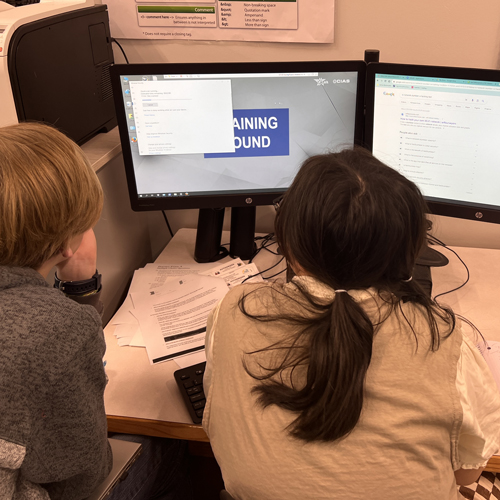
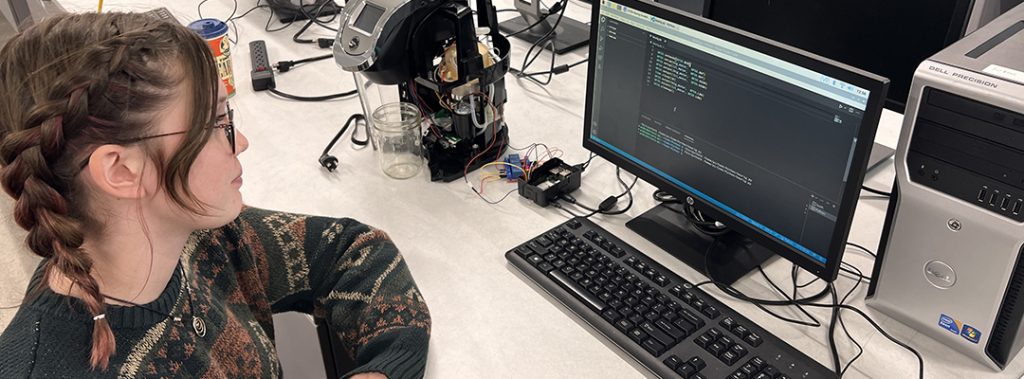
Just four years after its inception, the cybersecurity program at Idaho Falls School District No. 91’s Career Technical Education Center is already impacting the growing need for cybersecurity professionals. According to the Idaho Department of Labor, cybersecurity job openings in Idaho have increased 160% since 2015.
“Because the Idaho National Laboratory (INL) is in our backyard, it seems like they never have enough people to fill all the jobs they have in cybersecurity,” said Cathy Owen, who teaches the district’s cybersecurity classes.
Fortunately, the constant need for employees has translated into a steady stream of support for Owen’s program.
“The INL’s Cyber Corehas been phenomenal from the start,” said Owen. “They’ve provided everything from paid internships to equipment to mentors.”
In fact, some of Owen’s students discovered her program through the College of Eastern Idaho (CEI) and INL’s Cyber Core Summer Camp, which introduces freshmen thruough senior high school students and CTE teachers to cybersecurity and related topics. Students participate in hands-on learning activities, hear from industry mentors, and tour industrial facilities. The weeklong beginner course was held in Idaho Falls, Twin Falls, Boise, and Lewiston last summer, with an advanced course being held exclusively in Idaho Falls.
Through this program, Owen was introduced to Dr. Michael Haney, an assistant professor of computer science at the University of Idaho and a cybersecurity researcher at the INL. Haney, who serves on Owen’s technical advisory committee, has been instrumental in procuring resources Owen needs, like access to equipment, and use of the RADCIL Lab so students can work in a virtual network environment used for teaching cybersecurity without impacting school networks. Haney also introduced Mrs. Owen to the range and helped her secure a spot with cyber.org and their range, which is very important so students can work in a virtual environment.
It allows students to practice security techniques in a controlled, simulated space, offering hands-on experience without jeopardizing actual system. The range allows me to facilitate basic security practices to advanced threat detection in a safe, virtual environment.
Cathy owen
The summer camp has also facilitated partnerships with CEI, which offers dual credit opportunities for Owen’s students and paved the way for Security+ certification, an industry-recognized validation of foundational cybersecurity expertise.
Beyond academics, students benefit from participation in four content-related clubs, including the Cyber Patriot Program, Cyber Start America, Business Professionals of America, and, Idaho’s first high school chapter of Women in Cyber Security. These clubs foster practical application of the skills students learn in class and further their knowledge of cybersecurity.
The support and resources her students have access to have led to many promising opportunities in this growing field.
“I love hearing from my former students and having them share their experiences,” said Owen. “One of them received a full-time position at INL’s Help Desk; they’re actually earning a decent wage and getting their college experience paid.”
Digital media production program shapes future leaders in broadcasting
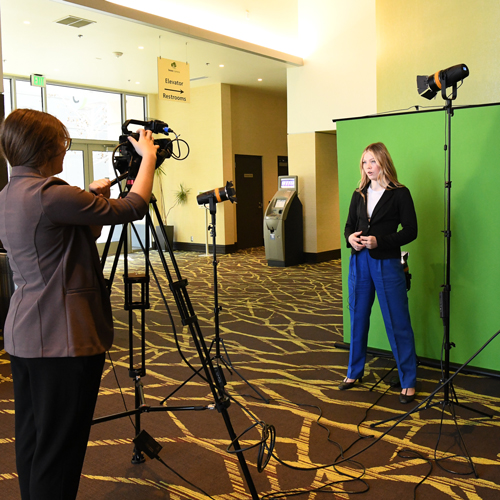
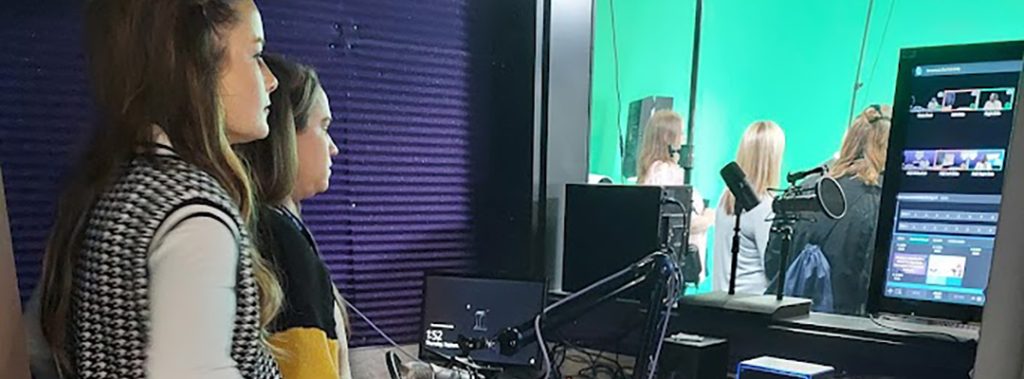
Davey Steele was always an athlete, so it was a natural fit when he got a work-study job running the video board, replay system, and shot clock for Vandal games at the University of Idaho’s Kibby Dome.
After he graduated with a degree in advertising in 2012 and had trouble finding a job, he started teaching economics, business, and merchandising at Lewiston High School (LHS). Before long, Steele found himself in a familiar spot: running the scoreboard, video board, and shot clocks at LHS’s basketball games. One night, Steele struggled to run all the equipment, plus play music during time outs on his own.
“It was absolutely crazy, and I needed help,” Steele recalls. “At some point, I thought, ‘I could teach my students to do this.’” Steele approached his principal about teaching the kids video production so they could help run games, and with his support, Steele started a sports broadcasting class as part of the school’s digital media production pathway.
Soon after, Steele requisitioned some lighting and a Tricaster production system for doing live video and graphics, and students started going live on YouTube with their school announcements every morning. This initial investment in equipment allowed the sports broadcasting students to stream the 2022 Golden Throne basketball game, an annual charity event held at Lewis-Clark State College. Their high-quality production received an incredible number of views on YouTube. Steele and his students were so excited they started live-streaming all of LHS’s basketball games.
“Games would end around nine or 9:30 p.m., and we’d have to wheel everything back to the studio to record the daily announcement the next morning. I didn’t like the wear and tear on the equipment,” said Steele.
Then, one of Steele’s students told him about a school in Mississippi with a mobile TV studio in a semi-truck. Steele had heard about Governor Little’s Leading Idaho grant program, so he wrote a grant for $104,000 to create LHS’s own mobile TV studio, complete with a trailer, replay system, monitors, Tricaster, and 300-foot cables.
With the mobile studio, we’ll be able to live stream our games on YouTube, and I believe we’re in a position to get enough views that we can sell ads.
Davey Steele
But Steele’s students’ ambition extends far beyond the studio. As LHS’s BPA, yearbook, and Associated Student Body advisor, Steele also encourages his students to flex their entrepreneurial muscles. One of his students took pictures at school dances and sold flash drives of the unedited images for $20; she raised $1,000 in a single night. Another student developed a marketing plan for the athletic department and used the school’s large-format Epson printer to print banners on sticky vinyl and windscreens to hang in the gym and outdoor facilities. They were sold to local businesses, and she raised $80,000 in a year.
Steele’s innovation and entrepreneurial drive were among the many factors that led to his program receiving an honorable mention in IDCTE’s 2023 Exemplary Program Awards. “We’re well on our way to being self-supported,” said Steele. “I say all this because I hope schools across Idaho can see what we’ve done here and be inspired to do the same.”
Grant transforms Bonners Ferry High School woodworking program
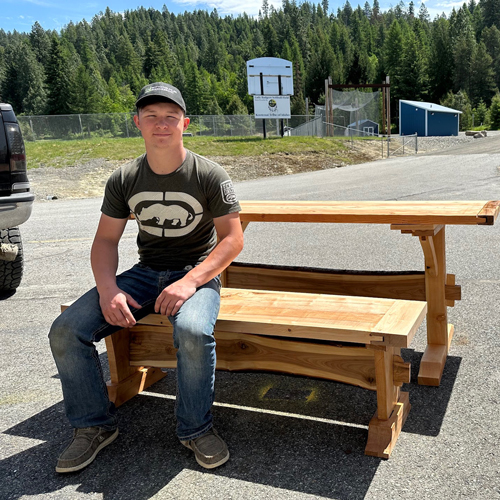
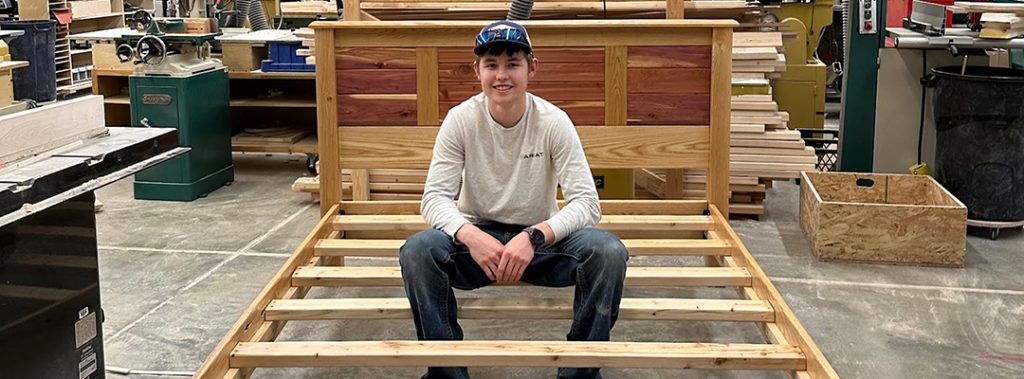
In 2014, Francis Carlson’s career took an unexpected turn. Though she had a certificate in fine woodworking from Selkirk College in Nelson, British Columbia, she struggled to find a job in the post-recession economy. It was then that Carlson, a 2011 Bonners Ferry High School (BFHS) graduate, discovered an opportunity to share her passion for woodworking in education.
Faced with the potential cut of the woodworking program at her alma mater due to the absence of a teacher, Carlson stepped in as a substitute teacher. Her initial reluctance turned into a genuine passion, and with enough experience on the job, she obtained a limited occupational specialist certificate and made the leap into teaching full-time.
“If we want our students to have the best education, we have to give them access to the best equipment,” Carlson affirmed. “Now I’m confident my students have that.”
Francis Carlson
Over the past nine years, Carlson has earned a bachelor’s degree in technical education and will finish a master’s degree in curriculum development from the University of Idaho. She has also become a fervent advocate for technical education and the imparting of practical employability skills.
“I’m passionate about CTE. I feel like this is where we should be directing our time, energy, and resources,” said Carlson.
Under Carlson’s guidance, the BFHS woodworking program has blossomed. Students start the program learning basics in shop safety, small tools and machines, as well as measuring and layout concepts. Students focus intensively on standards, planning, materials, drafting, and reading plans in their second year. The curriculum emphasizes lean manufacturing principles and includes techniques such as gluing and computer numerical control engraving for personalization. In their third year, students delve into the intricacies of cabinet joints, doors, and drawers, culminating in constructing cabinets for various locations at BFHS, such as classrooms, the principal’s office, and the shop toolroom. In the final year of cabinets, students dive deeper into cabinetry and fine woodworking learning advanced skills like veneering, glass etching, table construction and joints, with special emphasis on cabinet and furniture production.
Carlson actively collaborates with local employers to understand their needs, establish internships, and cultivate positive relationships with businesses. She also strives to give her students experience with industry-standard equipment so they can meet employers’ expectations on the job.
However, acquiring the necessary resources can be challenging in a small school within a small district. Though Carlson has made consistent upgrades and improvements since she began teaching, there’s one piece of equipment she hasn’t been able to replace: a dust collector originally installed in 1992. This vital component removes sawdust and woodchips, ensuring clean air and a safe work environment for students. The existing collector showed signs of wear and tear, but the financial burden of a $200,000 replacement was daunting for a small school.
Undeterred, Carlson used her grant-writing skills and applied for a Leading Idaho grant. In September 2023, she secured a $250,000 grant, not only covering the replacement of the dust collector but also upgrading the planer, drum sander, and jointer. The equipment is currently being manufactured, with the installation expected in January or February 2024.
Despite the temporary inconveniences during the installation, Carlson is optimistic about the new, more efficient equipment and how it will contribute to a dynamic and engaging educational experience. “If we want our students to have the best education, we have to give them access to the best equipment,” Carlson affirmed. “Now I’m confident my students have that.”
Diesel technology teacher bridges gap between industry and education
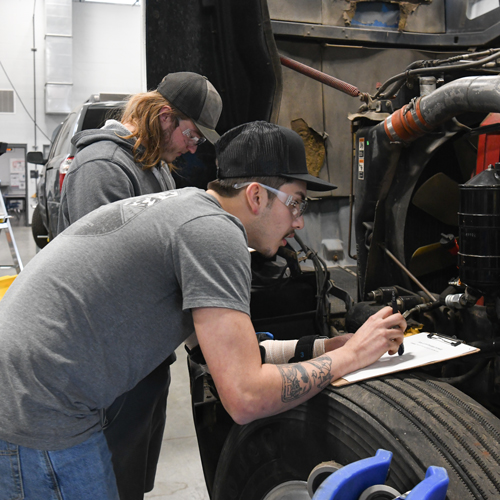
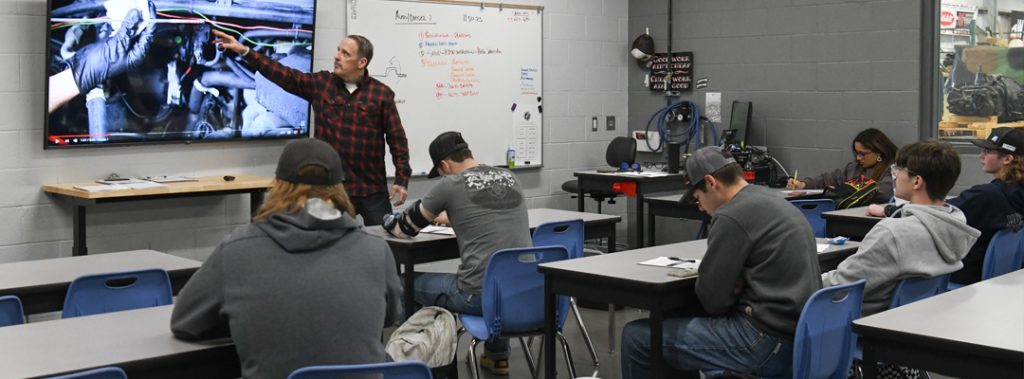
Paul Rood always liked cars, so it came as no surprise that after high school graduation in the late 1980s, he enrolled in Universal Technical Institute’s two-year auto diesel degree program and discovered his niche in heavy duty diesel repair.
“I never thought about being a diesel mechanic. Back then, it really wasn’t on my radar for a career,” said Rood. “But I took a diesel class for the heck of it and ended up really liking it.”
After 30 years working for top-tier employers like Peterbilt and Knife River, teaching was never on his radar. But somehow, towards the end of the COVID-19 pandemic, the CTE administrator at Kuna’s Swan Falls High School got a hold of his resume. The person who had been teaching diesel technology resigned unexpectedly, leaving a vacancy for a teacher with industry experience.
“All of my family and friends thought I’d be perfect for teaching, but I’d never really considered it until then,” said Rood. “When I went in for the interview, I was so impressed with the facility, I thought, ‘what the heck?’ and gave it a shot.”
I’m very tenacious, and what I envisioned when I took the job three years ago is pretty much where we’re at right now.
Paul Rood
Though Rood immediately took to the classroom and found students liked and respected him because of his experience, he found pursuing his Degree Based Career Technical Certificate through Idaho State University to fulfill the certification requirements was the most challenging part of his transition from industry veteran to educator.
“I don’t have a college background, so it was really frustrating to learn how to use software and technology platforms that I simply didn’t have to learn or use in the shop,” said Rood. “I think this is a glaring issue not only for me, but for other trades professionals trying to bring their experience to the classroom. Professors simply take for granted this gap in knowledge.”
Fortunately, Rood’s mentors from the Division, Bill Brown and Sandy Murin, helped him navigate the expectations of college-level work while simultaneously acclimating to being a new teacher.
“That first year was pretty challenging, but I always felt like Bill and Sandy were in my corner,” said Rood. “Bill especially helped me learn to play the game, and he’s talked me off the ledge more than once.”
In addition to his mentors, Rood also received strong support from the community and his technical advisory committee.
“Western States Cat, Knife River, Sun Rock, Western Trailer have all been so helpful since I’ve started this program. They donate parts and loan me equipment and give the kids opportunities like job shadowing, mentorship positions, and academies that lead to paid positions when they graduate,” said Rood. “I want my kids to aim high and feel comfortable rubbing elbows with people in prestigious shops. These partnerships really give them that.”
With only two classes left to complete his university coursework, Rood sees the light at the end of the tunnel.
“When I inherited this shop, it was just walls. I didn’t have any training aids or equipment to work on or any relationships with employers,” said Rood. “I’m very tenacious, and what I envisioned when I took the job three years ago is pretty much where we’re at right now.”
Integrated education training prepares student for rewarding career in trucking


Since Sandra Cortes was a child, she wanted to drive big trailers. However, her mother believed it was a job suited only for men. So, Cortes put her dream aside and settled for driving 10-wheel trucks, water trucks, and tractors with trailers on a dairy farm in Jerome, Idaho. Everything changed when she learned about the College of Southern Idaho’s (CSI) commercial driver’s license program (CDLP).
In Idaho, aspiring commercial truck drivers need a commercial learner’s permit (CLP) to enroll in truck driving school. Getting this permit involves applying and taking a written test, but Cortes faced a language barrier that prevented her from meeting these requirements. However, CSI’s CDLP is part of its integrated educational training (IET) programs. This specialized adult education model tailors learning experiences to a particular profession, so students receive job-specific training while improving other basic skills like literacy and English language acquisition. It was a perfect fit for Cortes’ needs and interests.
“At CSI, our IET programs focus on careers in high demand for our region, such as welding or certified nursing assistant,” said Jennifer Hall, director of College and Career Readiness and adult basic education at CSI. “According to the Idaho Department of Labor’s August 2023 labor market report for South Central Idaho, heavy and tractor-trailer truck drivers were among the three occupations with the most job postings.”
When students enroll in the program, they’re assessed on their skills so support can be tailored to their current needs and abilities. The eight-week program includes learning job-specific skills like safety protocols, traffic laws, basic vehicle inspection, and general education skills such as vocabulary tailored to commercial truck driving.
“The CDLP program helped me understand there is more to driving than just getting on a trailer and moving forward. I use what I learned from this program every day; it’s changed the way I drive.”
Sandra Cortes
After completing the program, students earn their CLP and can enroll in one of CSI’s partner driving schools for their commercial driver’s license (CDL). After Cortes finished the intensive four-week driving course with an endorsement in doubles and triples, CSI extended job placement aid, leading her to her current role as a long-haul truck driver at Riverence, an Idaho-based sustainable aquaculture company.
Cortes is thrilled with her new career and deeply appreciates the support she received.
“I started with little experience, but they gave me a chance to learn,” Cortes said. “Riverence feels like my second school; landing this job has been an incredible experience.”
Idaho Division of Career Technical Education receives global recognition from 1EdTech Consortium
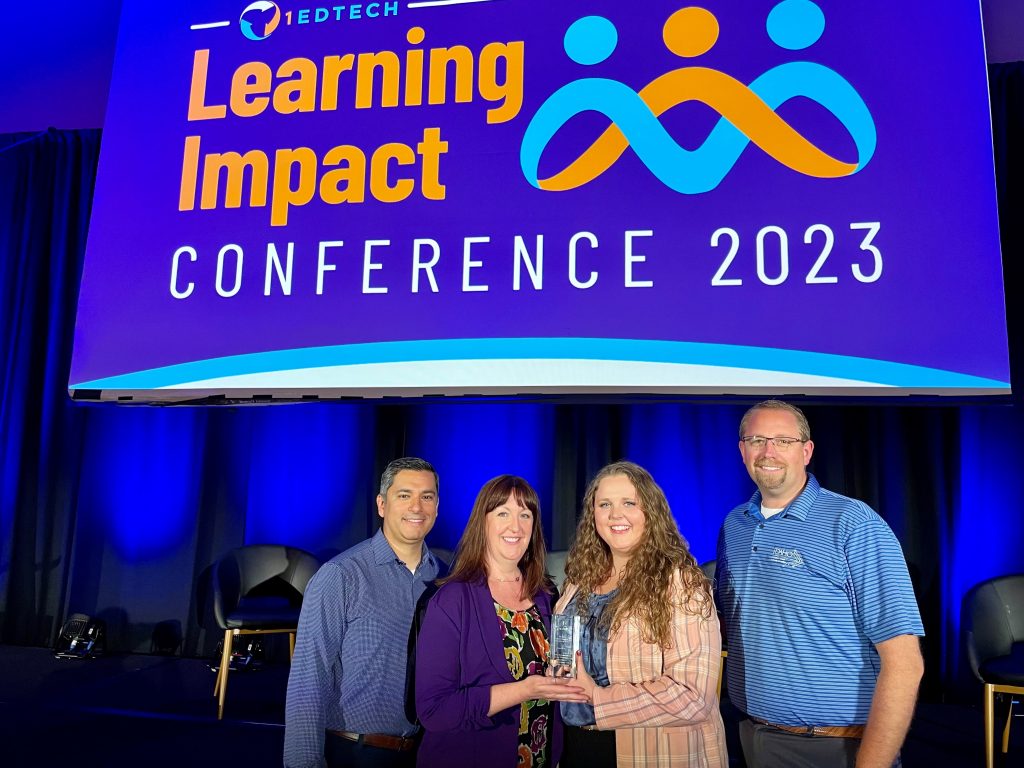
The Idaho Division of Career Technical Education (IDCTE) earned a Power Learner Potential Organization Award from 1EdTech Consortium™ at the 2023 Learning Impact Conference on June 7 in Anaheim, California, for their work in digital credentials and microcredentials. The newly created award is given to organizations leading the way in creating innovative ecosystems that power learner potential.
SkillStack® is Idaho’s microcredential platform. Competencies are developed through a collaborative process that engages employers, educators, and other critical stakeholders to ensure that microcredentials represent the technical and durable skills learners need to succeed. Learners acquire these skills and have multiple opportunities to demonstrate them, such as assessments and hands-on activities that are validated and tracked using SkillStack®. Learners then earn digital badges, which are a visual representation of microcredentials embedded with data verifying an earner’s achievements. These credentials are recognized by the Idaho State Board of Education. Verified industry partners can log in, identify microcredentials specific to their hiring needs, and send customized emails to potential candidates that possess the desired skills.

Since its inception in 2015, Idaho educators have issued over 100,000 badges via the SkillStack® platform.
“Getting to the future of education requires cross-boundary leadership spanning IT and curriculum and instruction from stakeholders across K-12, higher education, suppliers, governments, and philanthropic funders,” said Rob Abel, 1EdTech’s CEO. “Our Power Learner Potential Awards recognize those organizations that go above and beyond to take those collaborations to the next level to address the key educational leadership imperatives of our time.”
“It’s exciting to see how far we’ve come to make the vision of our digital credential platform a reality,” said Dr. Clay Long, IDCTE’s state administrator. “Having our team’s work acknowledged by experts around the globe gives additional validation for the work we’re doing and the opportunities it will continue to provide Idaho learners.”
#####
The Idaho Division of Career Technical Education (IDCTE) is the state agency charged with promoting and supporting career technical education programs throughout the state. IDCTE prepares Idaho’s youth and adults for high-skill, in-demand careers through collaborations with local school districts, institutions, educators, and industry partners.
1EdTech Consortium is a global nonprofit organization where some of the most innovative educational providers and technology companies collaborate to improve digital learning solutions and prepare for future challenges. Through collaborations and standards that work for all stakeholders, members create solutions that enable transformative digital learning experiences and personalized learner journeys, boost achievement opportunities, and improve learner success. IDCTE has been a contributing member of 1EdTech since March 2020.
 Official Government Website
Official Government Website